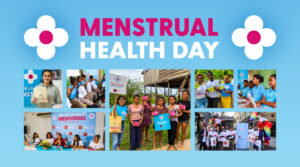It is very difficult to find a drug that does not have side effects. They can be very mild or infrequent, but if it is a laboratory-made substance, it is likely to have some consequence that is not the main purpose for which it was created.
However, in the production of drugs, it is always sought that the benefit they provide is greater than any inconvenience. In the case of antiretroviral drugs, this balance is very clear: taking HIV treatment allows you to keep the virus under control, which prevents the damage that the infection could do to your body, while side effects such as nausea, vomiting or diarrhea are of low intensity and, above all, temporary.
Adapting to the medication
If you have recently received an HIV diagnosis and are starting your treatment, or if your medication has been changed for some reason (resistance or failure), it is very likely that you will need an adaptation phase to the new substance.
The most modern antiretroviral (which are the ones prescribed to the vast majority of people today) can have fairly common and minor side effects. It is recommended that, at the appointment where the prescription is delivered, you ask your doctor about these effects.
Do not miss the opportunity to find out what you might feel? What can you do to avoid discomfort? What are the normal effects of treatment and in which cases should you seek medical help?
It is important that you are clear about what this stage that you are going to start implies, since, as you know, antiretroviral treatment must be taken for life and it is important that you feel familiar with your medications so that you can be constant with the intakes.
What can you do about the discomfort?
In general, the most common side effects of antiretroviral are nausea, vomiting, headache, and malaise. But you don’t have to worry, these problems usually last a couple of weeks, while your body gets used to the medications.
To tolerate them and, above all, so that they are not so annoying that they make you stop your treatment, the Argentine Ministry of Health has a series of recommendations that will help you manage them better.
It is also important that you do not modify the doses that your doctor indicated, as this makes the treatment less effective.
- Fatigue: Fatigue is considered that tiredness that does not go away, even though you sleep or rest. It can be physical or psychological, and its causes are diverse, such as HIV infection itself, poor nutrition, anemia, depression, or some other infection that takes advantage of your weakened immune system. Only your doctor can identify the cause and recommend the best way to treat it.
- Stomach upset: If the medicine allows it, take it with food. If you were told that it cannot be taken with food, you can take it two hours after eating. It may also be helpful to remain seated or semi-seated for a few minutes after taking the medication. If none of this helps, ask your doctor if you can take any other medication that relieves the discomfort (don’t do it without first consulting him).
- Diarrhea: Try to avoid foods that facilitate this complication. You can control it if you eat more astringent foods, that is, those that help slow down bowel movements and are easy to digest, such as pears, apples, rice, bananas or carrots.
- Dry skin: Drink more water and use moisturizer every day.
- Dizziness: Only some antiretroviral cause this effect, and to minimize it you can take it before going to sleep. If you do and the feeling of dizziness/vertigo continues in the morning, take it a few hours earlier than the night before.
- Headache: Try spending some time in a quiet, cool room without much light. You could try to relieve the sensation by placing cold water cloths on your head. If the pain is very intense and/or frequent, ask your doctor if you can take something for the pain.
- General discomfort: Try to rest as much as possible, scheduling a time of your day to rest. Try doing quiet activities that you enjoy (listening to music, drawing and singing) and try to relax. Remember that, despite the discomfort, it is important that you eat well.
Antiretroviral treatment is the key to living a long life in the best possible health, so you shouldn’t let a few discomforts, almost always temporary, keep you from what’s best for you.
And remember that if you haven’t started your treatment yet or if you suspended it and want to resume it, at AHF Latin America and the Caribbean we can help you. Just come to our offices in your country and learn about our services.







